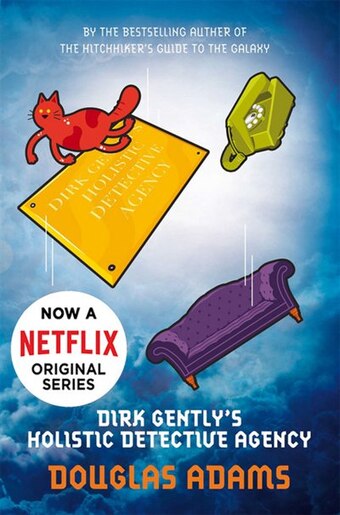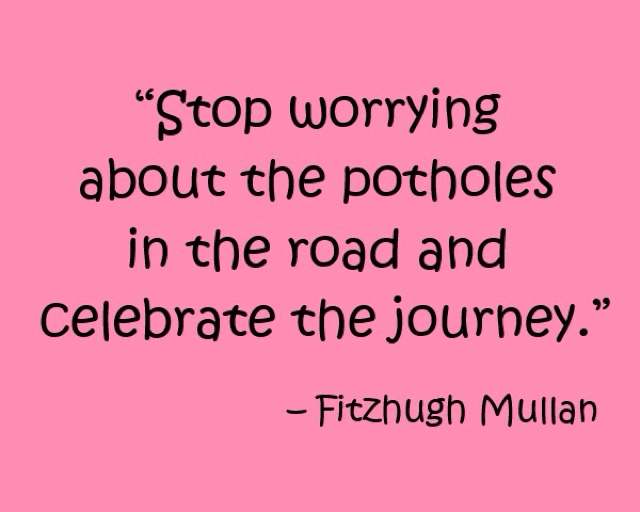Dirk Gently's Holistic Detective Agency
The first thing you need to know about Dirk Gently's Holistic Detective Agency is that it doesn't really make sense unless you're familiar with the poetry of Samuel Taylor Coleridge. That may seem odd, but I promise you that knowing this famous Romantic writer is crucial to the mystery being investigated by the title character, and the author includes many other more subtle nods to The Rime of the Ancient Mariner.
 The next thing you need to know is that Douglas Adams' writing style is nothing short of bizarre. However, he uses science fiction, mystery, and horror elements in the most uniquely comedic ways. His narrative voice is fantastically whimsical, and he somehow manages to approach all topics--from the mundane to downright gruesome--from a whole new perspective. Never could I have imagined what it would be like to see this world without having prior contextual knowledge upon which to build my understandings, yet somehow Douglas Adams manages to do exactly that. He'll make you look at situations in a whole new way.
The next thing you need to know is that Douglas Adams' writing style is nothing short of bizarre. However, he uses science fiction, mystery, and horror elements in the most uniquely comedic ways. His narrative voice is fantastically whimsical, and he somehow manages to approach all topics--from the mundane to downright gruesome--from a whole new perspective. Never could I have imagined what it would be like to see this world without having prior contextual knowledge upon which to build my understandings, yet somehow Douglas Adams manages to do exactly that. He'll make you look at situations in a whole new way.
The most significant way he does this is by looking at the "fundamental interconnectedness of all things." This is how Dirk Gently investigates mysteries, and the reason that he refers to himself as a "holistic" detective. He doesn't look for clues, he looks for things that are unusual, especially unusual events that seem to be centered around a certain person or situation, and tries to understand what is causing all of those things to occur and how they relate to one another.
Through much of the text, Adams' narration jumps between seemingly unrelated scenarios: a college dinner, a magic trick, an Electric Monk, a desperate ghost, and a couch stuck in a staircase. And yet, somehow, they all seem to have some connection to the life of one Richard MacDuff, an old friend of our quirky detective. By the end of the novel, Adams will have you believing that the connections between all of these seemingly disparate things are so obvious that you could only have missed them because you didn't have all of the facts to begin with.
Perhaps what Douglas Adams wanted to communicate to readers was that all things are more connected than we believe. Or maybe he wanted us to think about the fact that we rarely see the whole picture when looking at isolated events in our lives. We may not understand why something happens the way it does, but there may be a much greater reason for it than we can ever know unless we can find a way to examine our lives holistically.
This book reminds me that I need to look at the bigger picture. Sometimes, it can be easy to go through hard times and feel like life is unfair, like we've been given the short end of the stick for no reason. But nothing in this life happens without a reason; I truly believe that.
I believe that God is in control of everything. That doesn't mean that we don't have the freedom to make our own choices, but it does mean that things happen because he allows them to happen. God has a far greater perspective than we do; he sees how things play out in the grand scheme of history, how they affect everything else in the world. We can't ever have that perspective because we are just finite human beings.
That's why we sometimes feel like God is unduly punishing us by letting us suffer. When we struggle with addiction, or we lose a loved one, or we find ourselves deep in depression, it can feel like nothing good will ever come from that, like God may even have lost control of the situation. But we need to know that he never has.
God sees the fundamental interconnectedness of it all--he sees the way that even the worst situation can be used for our good and his glory.
Despite the fact that Douglas Adams claimed to be a "radical atheist," his book serves as a reminder for me that God has a master plan for everything that happens in this world and that he can use even the most tragic situations for a far greater purpose than my little human mind can see.

Comments
Post a Comment